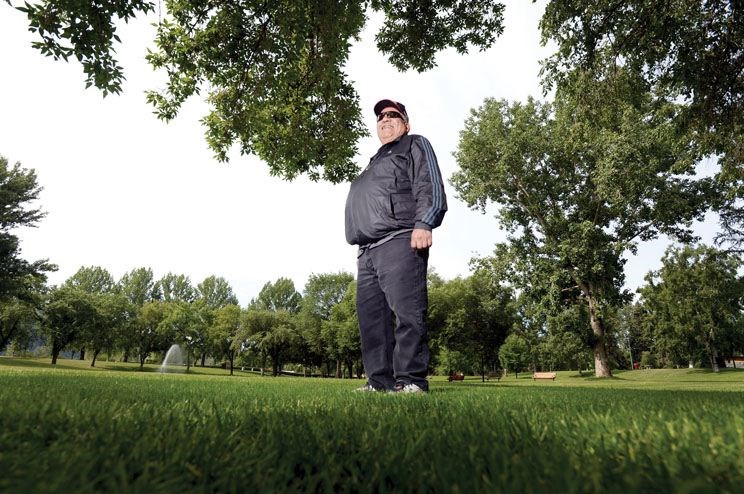As he stood in the vast city park that will soon bear the name of his people, Lheidli T'enneh chief Dominic Frederick had a smile on his face.
"I wasn't too sure whether it was going to go through or not," Frederick said of Monday night's city council vote to change the name of Fort George Park to Lheidli T'enneh Memorial Park.
"I wasn't really hopeful because there was a lot of negativity in regards to that and how it came forth. We grow used to it - make promises and then they're broken."
But by a vote of 8-1, the recommendation from Coun. Murry Krause to rename the city space after the local First Nation did pass, despite a torrent of negative reaction posted online and provided directly to members of city council once the proposal became public last week.
Much of that negativity stems from ignorance, said Frederick.
Ignorance of the history of the park site as well as a lack of understanding over what the name change would mean.
"They're not signing the park over to us. It will still belong to the city of Prince George," Frederick said.
"The city will still be in charge of it. They're only changing the name."
The park was the site of a Lheidli T'enneh village that was destroyed in a 1913 fire set to ensure the sale of the reserve would go through unimpeded.
A marked cemetery is all that remains of the original village, though artifacts and human remains are still buried beneath the grass throughout the entire site.
Understanding the area's history requires looking further back than any resident's personal experience with Fort George Park.
And it's an understanding that began for Krause two decades ago when he began his job as executive director of the Central Interior Native Health Society.
"The last 20 years for me have been wonderful in terms of my education," said Krause, who also chairs the Union of B.C. Municipalities committee on First Nations relations.
Conversations that would eventually lead to the name change began nearly three years ago, after the creation of the city's 100th anniversary committee.
"No, when we started this discussion, I did not think it would lead to here," said Krause, who also chairs that group.
He said the committee agreed early on that in celebrating the city's centennial, there was also a need to be sensitive to the fact it may not be a cause for celebration for everyone.
And in the wake of the Truth and Reconciliation Commission report released earlier this month and UBCM work that "encourages local governments to nurture good, functional relationships with their neighbouring First Nation," Krause said it made more sense to move forward.
"When you take all of that into consideration it was just like it was coming together," he said. "Especially as national aboriginal day got closer and we're still within our 100th anniversary year, you start saying 'why not?'"
Changing the name of a park isn't meant to smooth over years of injustice, Krause said.
"Renaming the park doesn't mean that all of a sudden we have the ultimate relationship we want to have with the Lheidli, but it's one indicator that we're walking the walk," he said, adding a little plaque outside the existing cemetery isn't a meaningful gesture.
Chief Frederick - who pushed for the word "memorial" to be included in the park's new name - agreed.
"To the city, it's one way to show that they're working towards that reconciliation and a lot of that stuff that went on with the residential schools and so on and trying to wipe out the aboriginal peoples and their names and their sites and their reserves," Frederick said.
Krause said he knew it wouldn't be without push back and toyed with the idea of some form of public consultation, but that ultimately - if council was willing - it was something that needed to get done.
One of the chief complaints voiced is confusion over how to pronounce Lheidli T'enneh (think 'lately ten hay').
Despite the First Nation's long history in the area, Frederick says people haven't been compelled to learn.
"They don't search or ask people. Or they don't know who we are. They don't know who Lheidli is. We're known as Fort George band, as Shelley Indians, whatever they tagged us with. But they don't know us as Lheidli," he said.
During the Canada Winter Games, the band worked to boost their profile, he said, signing on as the first official Host First Nation and setting up a pavilion downtown to showcase Lheidli T'enneh culture and history.
Despite the vocal opposition, Krause said he's had numerous conversations with people who are for the name change and, having lived in the city his whole life, said Prince George should be portrayed as the progressive community that he said he knows it is.
"It doesn't matter where you live, you can live in downtown Vancouver and perceive that somehow you're living in the most progressive city in the world, similar issues can arise," Krause said.
"These are societal issues that we need to be speaking to."



